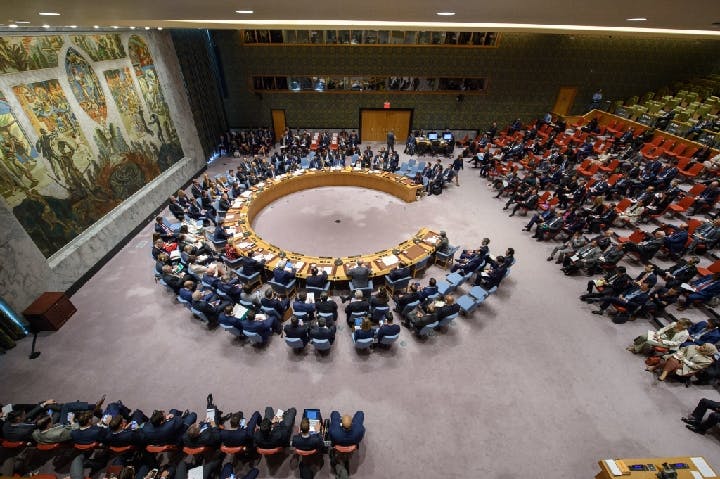Fall 2018
For the UN, a Rise in Populism Reveals an Old Challenge
– David Bosco
The easiest route for the organization and those that supports its human rights activities is to hunker down and wait out the present unpleasantness. That would be a mistake.
President Donald Trump’s history as a New York real estate developer has given him an unusual perspective on the United Nations. A self-declared “big fan” of the world organization, Trump made a pitch in 2005 to renovate the aging UN headquarters building – and was rebuffed. As president, he has attempted some reconstruction from the rostrum, laying into the world organization for its alleged faults, while also celebrating at length his own accomplishments. Trump’s 2018 General Assembly address provoked laughter from the assembled diplomats when he launched into his habitual litany.
But the U.S. president’s inadvertent comic relief could not dissipate the cloud created by what senior UN officials see as rising populism, nationalism, and anti-multilateral sentiment in several corners of the globe. The American president’s version gets by far the most attention, but he is hardly alone. From Italy to the Philippines to Hungary and now Brazil, a generation of leaders is rising that harbors an active distaste for the United Nations and other parts of the global architecture. Last spring, Hungary’s Viktor Orbán used a new UN agreement on migration as a foil in local elections; posters appeared across the country rejecting the body’s interference on migration policy. Italy’s Matteo Salvini, now serving as deputy prime minister, recently described the UN as “an organization that costs billions of euros,” funding “waste, embezzlement, and theft.” Others have been even more hostile. During a campaign stop, Brazil’s Jair Bolsonaro pledged to leave the United Nations, which he said “serves no purpose.” As is his wont, Philippine President Rodrigo Duterte topped them all, suggesting that several UN officials should be fed to crocodiles.
The United Nations is certainly no stranger to vitriol, and the organization and its leadership have always been a tempting target for politicians seeking to score easy points. These attacks come and go, and the breadth and depth of animosity to multilateralism is very much open to question; surveys still show strong public support for the organization and its work in most parts of the world. But the barbs from politicians in so many places, including countries normally supportive of the UN, suggest that a new phenomenon is at work. And coming in the context of the United Kingdom’s decision to leave the European Union and the American president’s regular broadsides against multilateral institutions, no one is inclined to downplay the threat.
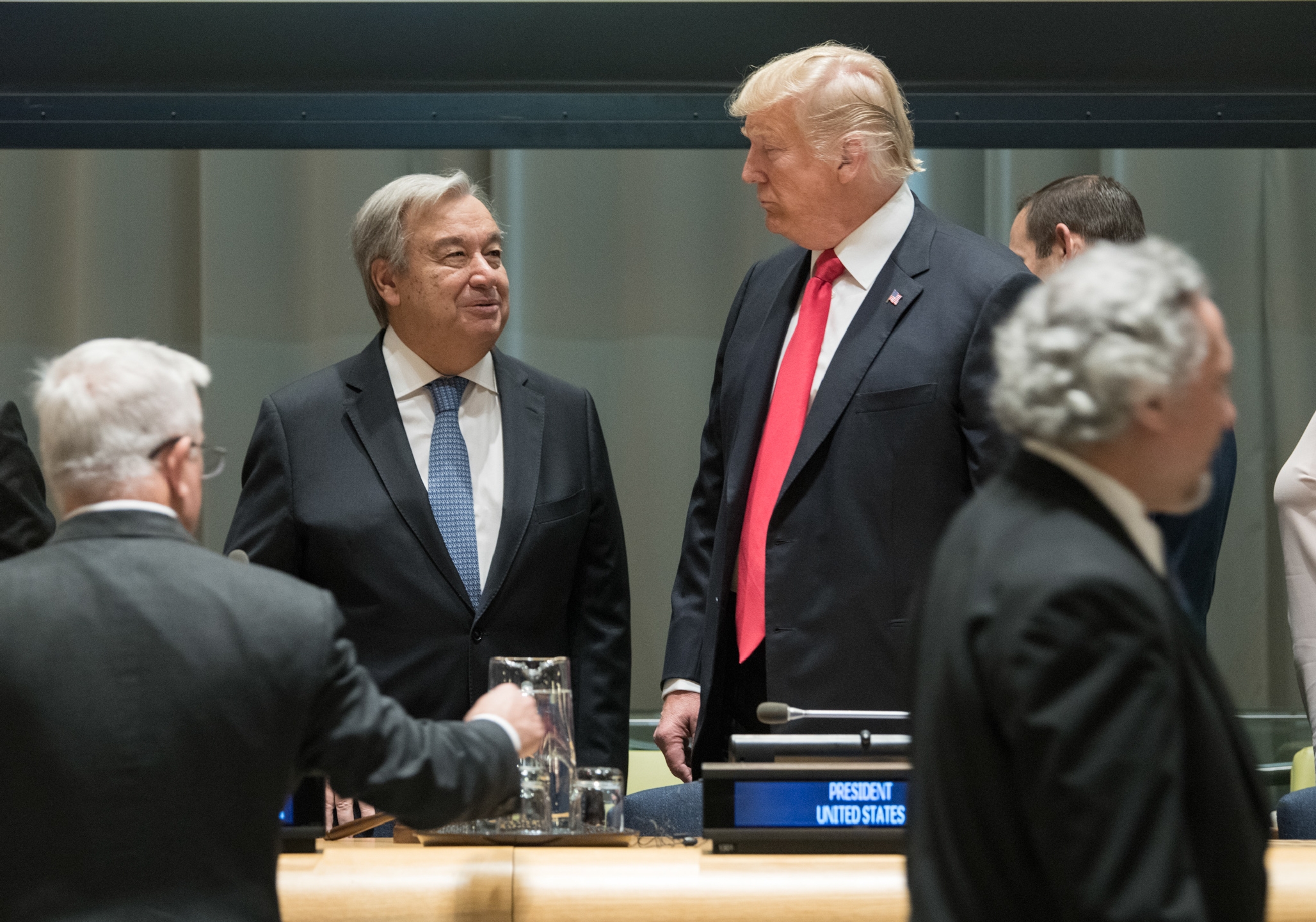
In his speech to this year’s General Assembly, Secretary General António Guterres worried about crumbling faith in the global architecture and called for an urgent reinvigoration of the institutions that compose it: “Multilateralism is under fire precisely when we need it most,” he lamented. But any revival of its fortunes requires a clearer understanding of the dynamic behind the discontent. For all their ignorance, hypocrisy, and thuggishness, the populists raise an important point about the United Nations.
The Populist Complaint
The new resentment of multilateral institutions emanates mostly from anger that distant world organizations see fit to judge the choices of national leaders, politicians, and populations. Indeed, direct criticism by UN officials prompted most of the recent populist outbursts. Salvini was reacting to a UN human rights official who had expressed concern about Italy’s tightening migration policy. “Before doing checks on Italy,” he suggested, “the UN should investigate its member states who ignore basic rights like freedom and equality between men and women.” Nikki Haley, President Trump’s UN ambassador, reacted with similar incredulity when a UN expert issued a report on inequality and poverty in America. “It is patently ridiculous for the United Nations to examine poverty in America,” she fumed. For his part, Duterte was enraged by criticism of his sanguinary war on drugs.
The question of how involved multilateral institutions should be in the internal matters of its members is serious and longstanding. In fact, divergent answers can be found in the text of the UN’s founding document.
It is not surprising that national politicians bristle at criticism from supranational officials. To those in the trenches of national politics, barbs from UN personnel not responsible to electorates, the public at large, or powerful domestic interests can be enervating, even maddening. And the question of how involved multilateral institutions should be in the internal matters of its members is serious and longstanding. In fact, divergent answers can be found in the text of the UN’s founding document. The United Nations Charter broadly endorses human rights, but also declares that issues “essentially within the domestic jurisdiction of states” should be beyond the organization’s remit. On the basis of the Charter alone, the populist-nationalist complaint about the UN’s frequent meddling has some merit.
At its creation, the United Nations’ focus was to prevent a recurrence of international aggression and help states resolve their disputes without resort to conflict. But the work of national diplomats in the decades after the Charter was adopted in 1945 all but interred the idea that the UN should not be concerned with the behavior of states within their borders. That turn began in earnest just a few years after the Charter was approved, when the General Assembly adopted the Universal Declaration of Human Rights in 1948. While not legally binding, the Declaration endorsed a remarkably specific vision of a good and just society – one that protected free speech, provided for free and fair elections, and ensured equal treatment of citizens. It was wildly ambitious in places. In a world plagued by extreme poverty and dislocation, the Declaration insisted that all should enjoy unemployment insurance, free education, access to medical care, the right to join unions, and periodic paid holidays.
The process of enumerating international rights did not end there. Two decades later, national diplomats adopted binding and even more specific treaties on civil, political, economic, and social rights. The treaty-making continues to the present day. Prodded and encouraged by influential activist groups, states have negotiated a raft of specialized treaties on racial discrimination, torture, and the treatment of women, children, migrant workers, and the disabled. A few vague phrases in the United Nations Charter have been transformed into a web of commitments from governments about how they should behave within their own borders. Most states have signed most of these agreements, including countries whose leaders are now inveighing against interference. Italy has ratified 17 of 18 major human rights treaties, Brazil has joined 16, and Hungary and the Philippines have each ratified 14. The United States has been much less willing to commit, only joining five.
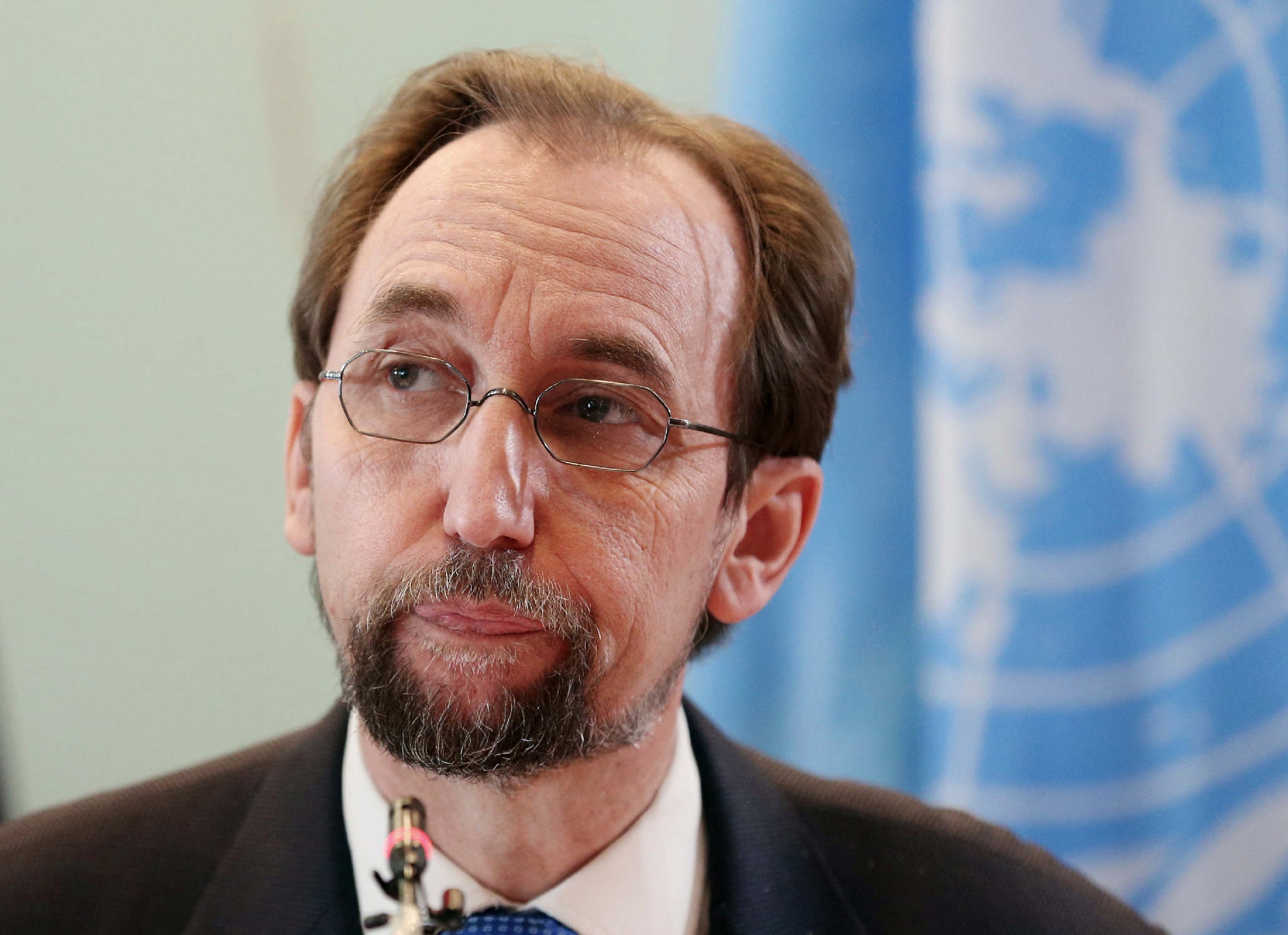
In part to monitor compliance with the dizzying array of legal pledges, the UN has over the years developed a small but visible human rights bureaucracy. This apparatus is almost entirely non-coercive; its bark is its bite. (Only the Security Council has the power to impose sanctions or otherwise punish states for violations, and it rarely does so on human rights grounds alone). Even absent coercive power, however, the UN human rights regime is suffused with the language of law and obligation. It is less a contribution to debate about the proper functioning of domestic society than a reminder that those questions have already been answered – in the form of multilateral treaties, some almost 50 years old.
Until recently, Zeid Ra’ad Al Hussein of Jordan served as the top UN human rights official, and he used his position to regularly lecture states such as Nicaragua, Yemen, Somalia, Syria, and Zimbabwe. But other interventions focused on rich Western democracies. In the wake of Brexit, Zeid expressed concern about attacks on migrants in the United Kingdom, and he blasted the Trump campaign and administration for its attacks on the press and its policy of separating migrant children at the southern U.S. border. His successor, former Chilean President Michelle Bachelet, appears set to continue his outspokenness.
The UN’s human rights chief is joined by a loose network of other officials who can claim to speak for the organization in defense of human rights treaties. Working from mandates created by the UN’s Human Rights Council, a cadre of “special rapporteurs” travels the world, speaks to the local media, and produces regular reports on an array of subjects, including extreme poverty, the right to fair housing, the right to physical and mental health, extrajudicial killings, the right to food, cultural freedom, and freedom of the press. According to Ted Piccone, a Brookings scholar who has studied the work of rapporteurs, these individuals often see their role as not merely applying concrete human rights commitments, but interpreting international law in a broader sense, relying on nonbinding resolutions, declarations, and principles. These rapporteurs are usually well-versed in human rights, but often untrained in diplomacy or public relations. They are the physical manifestation of the UN’s gradual transformation into one that routinely scrutinizes and comments on internal developments.
The UN’s turn from its inter-state roots toward the supervision of the internal affairs of states mirrors the trajectory of several other international organizations. Policies of “conditionality” adopted by the International Monetary Fund and the World Bank have enmeshed those organizations much more in domestic affairs than early in their history. The World Trade Organization has taken to scrutinizing myriad domestic regulations, including on environmental and health matters, in the hunt for violations of trade law. The new International Criminal Court has investigated primarily civil conflicts and has indicted almost two dozen individuals, mostly for crimes committed against their fellow citizens. In short, multilateral institutions are now up to their elbows in the dilemmas of internal governance. Whether today’s bubbling resentment of supranational scrutiny will have lasting effects depends in large part on the path taken by the United States.
America’s Split Personality
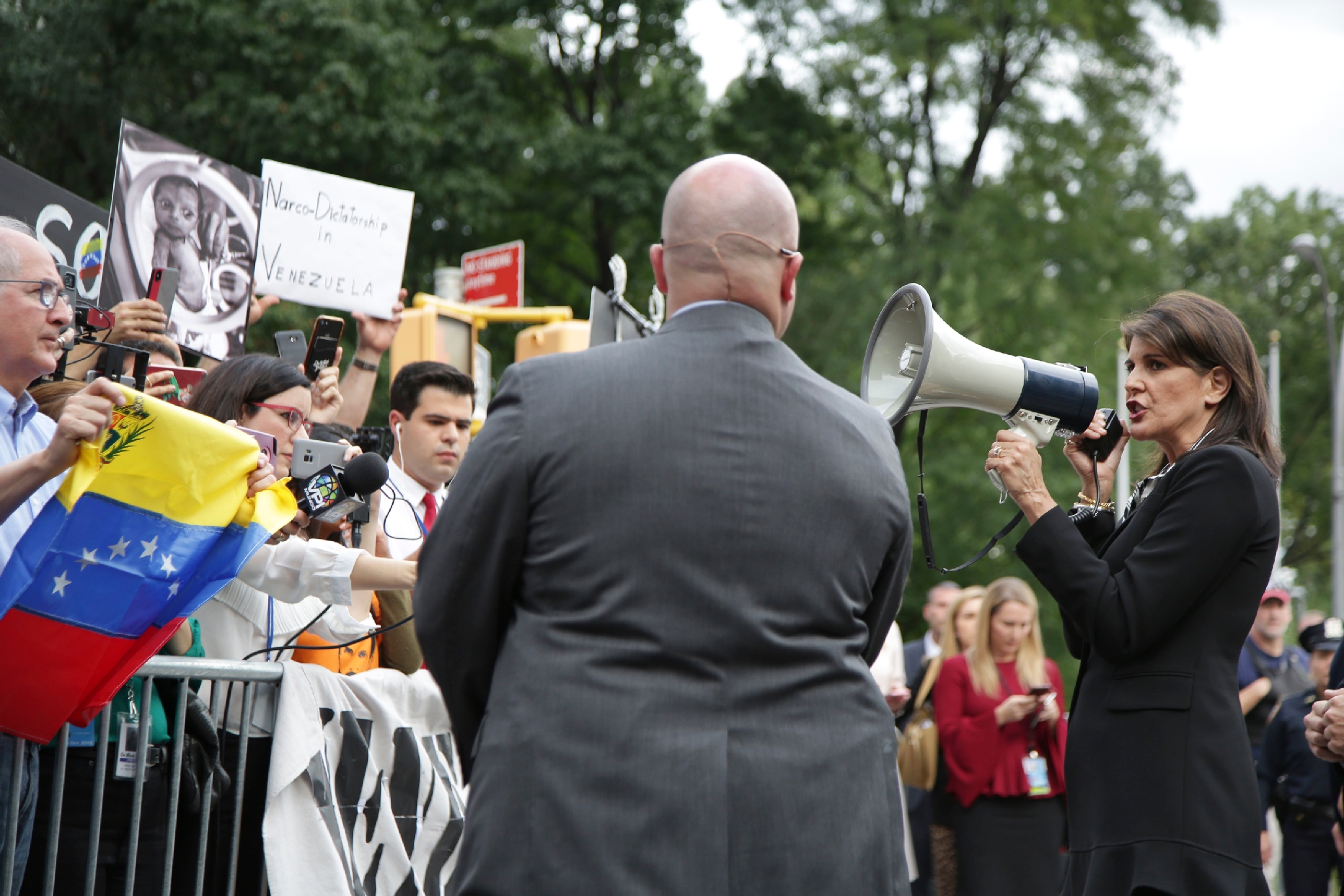
More than any other recent president, Trump has articulated a full-throated attack on the concept of supranationalism. The first half of this year’s General Assembly speech valorized sovereignty, describing states as vessels for “a distinct culture, a rich history, and a people bound together by ties of memory, tradition, and… values.” The United States, Trump promised, “will always choose independence and cooperation over global governance, control, and domination.” He explicitly lauded “patriotism” and rejected “globalism.”
But long before Trump’s jeremiads, America’s relationship with the UN has been fraught. World War II suppressed the country’s historical aversion to international entanglements, and the overwhelming approval of the UN Charter by the Senate was a watershed moment. By the 1960s, however, American affinity for multilateralism, at least of a global sort, had waned considerably. Washington grew intensely frustrated at frequent defeats and mounting criticism in the General Assembly. In 1970, the United States cast its first ever veto on the Security Council. Around the same time, Washington became markedly more skeptical of multilateral treaties, refusing to ratify several major human rights conventions and other international treaties, including the painstakingly negotiated Law of the Sea Convention.
The increasingly close U.S. relationship with Israel only deepened America’s sense of dissatisfaction with the organization it had all but created. In 1975, then-UN Ambassador Daniel Patrick Moynihan penned “The United States in Opposition,” a resounding call for American envoys to do rhetorical battle inside what he considered a mostly hostile organization. That view of the UN as a gladiatorial forum has endured through successors Jeane Kirkpatrick, John Bolton, and Nikki Haley.
Will Trump’s call for a purer version of sovereignty have much purchase? It is telling that the president struggled to maintain that posture even for the remainder of his recent General Assembly speech.
But that tradition cannot fairly be described as a sovereigntist or nationalist one. Moynihan’s concern was essentially ideological – that the new states that had come to dominate the UN were inspired by a socialist vision shot through with anti-Americanism. Moynihan and his successors have railed at the UN not so much because it interferes in sensitive domestic issues, but because, in their view, it chooses the wrong targets. When able to work its will, however, the United States has not been shy about turning the UN’s mechanisms on regimes that it believes do merit condemnation.
Given this background, will Trump’s call for a purer version of sovereignty have much purchase? It is telling that the president struggled to maintain that posture even for the remainder of his recent General Assembly speech. A few moments after his insistence that the organization respect domestic decisions, he lambasted the Venezuelan government for its disastrous socialist policies. Several weeks earlier, Haley had convened a Security Council meeting that addressed human rights practices in Nicaragua. Much as some in Trump’s orbit might like to, the United States just cannot quit criticizing other countries for what it sees as their domestic ills.
An Illiberal United Nations?
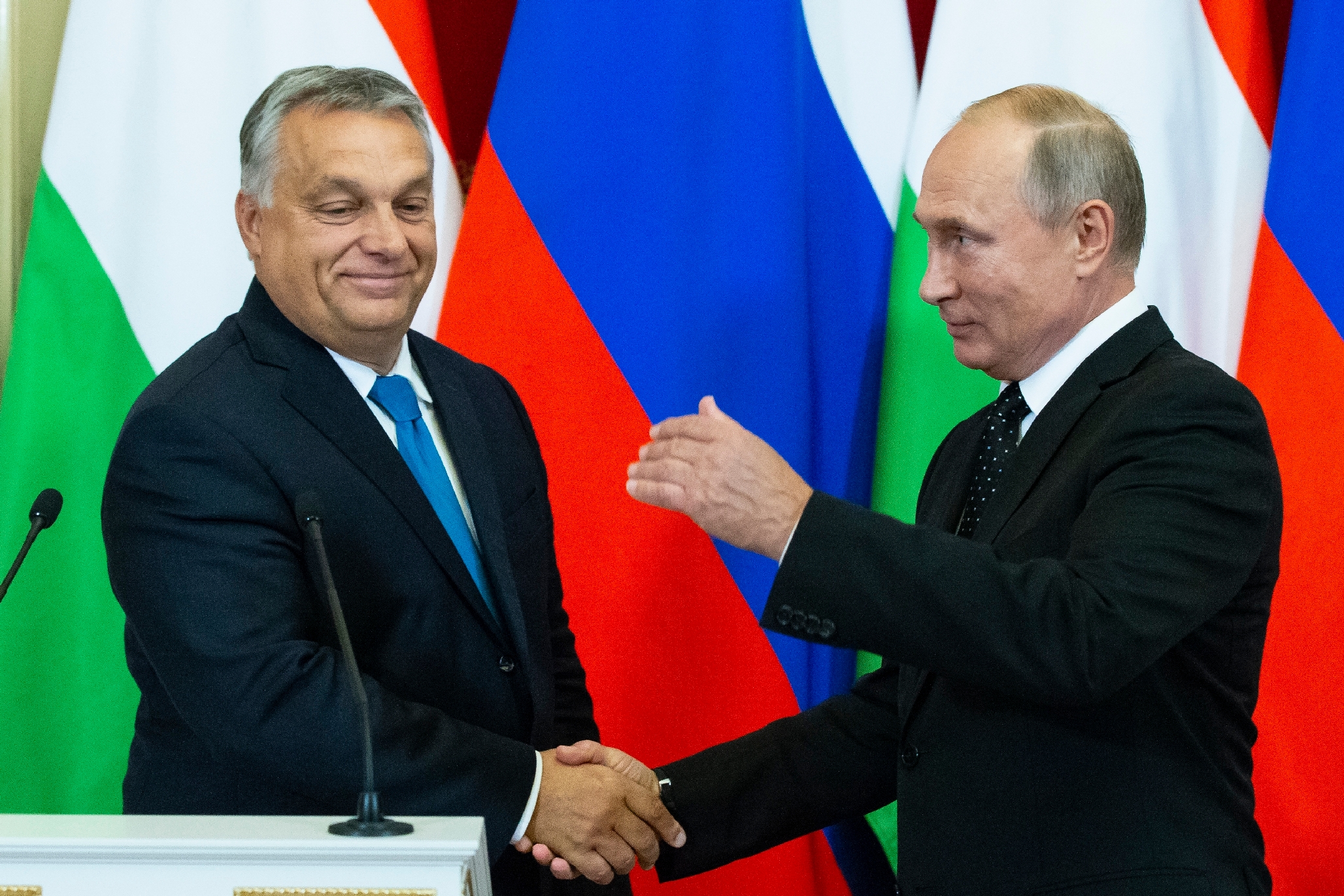
America’s difficulty embracing a consistent sovereignty-based approach suggests the tenacity of expansive human rights discourse at the UN. The United States has abandoned for now the Human Rights Council, but even the Trump administration appears unlikely to mount a more sustained attack on the organization’s human rights infrastructure. And other actors who might be inclined to restrict the UN’s scrutiny, including China and Russia, have not managed to forge a viable coalition to achieve that goal. Even if newer populist voices, like Brazil’s Bolsonaro or Hungary’s Orbán, could effectively link up with these authoritarian states, forcing a change in direction would require an investment of effort in byzantine UN politics that they may not want to make.
Meanwhile, any efforts to erode the organization’s activity on human rights will continue to face staunch opposition from liberal-leaning governments, particularly in Europe and Latin America, and influential nongovernmental advocates. Given this considerable reservoir of support, the easiest route for the organization and those that supports its human rights activities is to hunker down and wait out the present unpleasantness.
That would be a mistake. Even if it soon crests, the populist and nationalist ire at the UN and other multilateral institutions is a valuable reminder of a nettlesome problem. Nearly 75 years after the UN’s creation, there is still only a weak and inchoate sense of global community. The UN and other global institutions have a very limited capacity to refresh and renew their legitimacy. Most states see little direct benefit from the organization’s work, and their most direct contact may now be a foreign lawyer or academic appointed by the UN jetting in to criticize the country for failing to live up to often quite vague commitments.
Given the UN’s very limited attachments to the peoples of the world, the organization (and the states that ultimately direct its activities) need to think much more seriously about when to use its voice – and how to modulate it. The UN Charter’s insistence that domestic matters should be beyond the organization’s reach was partly the product of national leaders hoping to put their sins beyond international scrutiny, but the admonition also reflected a wisdom about the nature of politics and the organization’s limits that is worth recovering.
The UN’s leadership and the states on the Human Rights Council should become much stingier about creating new mandates and eliminate superfluous and overlapping ones. They should provide rapporteurs with diplomatic training and develop criteria for when UN scrutiny can be most effective. As it monitors human rights commitments that are often vague and capacious, the UN should not overlook the dangers of the perception that domestic debates are being decided by outsiders. A frank consideration of this issue could improve not only the organization’s reputation, but its effectiveness – in times of rising populism or otherwise.
***
David Bosco (@multilateralist) is an associate professor at Indiana University’s Hamilton Lugar School of Global and International Studies and a contributing editor at Foreign Policy. A specialist on global governance and the UN system, his latest book is Rough Justice: the International Criminal Court in a World of Power Politics.
Cover photo: The UN Security Council meets on North Korea, September 27, 2018. (Courtesy of UN Photo/Loey Felipe)
